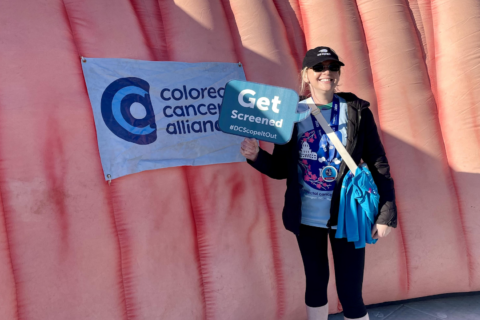D.C. and Virginia have plans to ramp up their COVID-19 wastewater surveillance programs in the coming weeks, providing a tool that experts say allows health officials to get a pulse on community transmission before hospitals see a spike in patients.
The process enables thousands of people to be screened at a time, by looking for biomarkers of the coronavirus in wastewater, said Rekha Singh, wastewater surveillance program manager at the Virginia Department of Health. The virus can be detected in wastewater between six and 15 days before a confirmed clinical case.
Virginia, Singh said, has 25 wastewater treatment plants across the state, enabling health officials to monitor about 1/3 of the population through the surveillance. Six of the sites will be in Northern Virginia, including one in Alexandria, Singh said.
In D.C., Anil Mangla, the city’s state epidemiologist, said the infrastructure is in place for its surveillance program to launch within the next month.
A Maryland Department of Health spokesperson didn’t respond to an inquiry regarding whether the state was planning to monitor wastewater.
The wastewater programs are slated to begin at a time that coronavirus levels across the D.C. region remain low. By getting the initiative underway, experts will easily be able to detect any change in community transmission.
“It’s cost-effective, it’s independent of personal actions like testing, and it can track trends,” Singh with VDH said. “It can provide data in advance of patient case data, and the science is advancing everyday.”
The local efforts come more than a month after the Centers for Disease Control and Prevention announced that wastewater sites across the country would begin sending water samples to labs to detect the presence of the coronavirus.
The wastewater samples are representative of the community, Singh said, because they can capture both symptomatic and asymptomatic cases, allowing infections to be detected even if someone doesn’t take a test. As more at-home tests are used, there’s a chance results aren’t reported, leaving a gap in the data, she said.
“This can help us in sharing an early warning signal to the COVID task force, and they can better prepare the hospitals and they can deploy the resources in particular areas based on our viral load data,” Singh said.
While now being used for COVID-19 detection, Singh said wastewater has also been used to detect polio and other diseases. In Virginia, health officials are investigating whether the same method can help detect influenza, respiratory syncytial virus, antibiotic resistance and opioid use.
A Centers for Disease Control and Prevention grant is funding the department’s COVID-19 surveillance efforts.
The University of Virginia used wastewater testing previously during the pandemic, and both Singh and Mangla in D.C. said it can be useful to detect virus prevalence in congregate settings.
Singh said the process is limited in some ways because information can only be collected for the portion of the population that has sewage flow into the wastewater treatment plants being tested. It also may collect data from visitors to a neighborhood.
In the coming weeks, the Virginia Department of Health will launch a dashboard with wastewater data that, once live, will be updated weekly. D.C. hopes to have its program ready to launch in April.
“If you know [more spread] is happening, you can already be really proactive in trying to make sure people are vaccinated, people are tested, therapies ready and start doing mitigation protocols within those areas.” Mangla said. “It’s almost like that next phase of surveillance that many states are going to implement and continue as we go into this new phase.”








